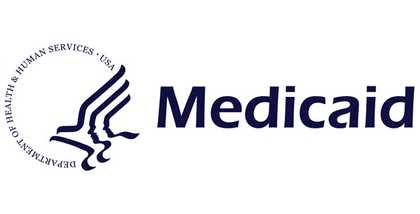So, why is dental cleaning important, so much so that people have it done every 6 months? Dental cleaning is crucial for maintaining oral health and preventing serious dental issues.









$149 New Patient Special!*
Includes comprehensive exam, full mouth x-rays and a cleaning for new patients without insurance.
So, why is dental cleaning important, so much so that people have it done every 6 months? Dental cleaning is crucial for maintaining oral health and preventing serious dental issues. Understanding why dental cleaning is important can help you make informed decisions about your oral care routine. Regular cleanings, performed by a dentist washing teeth, remove plaque and tartar, aiding in early detection of potential problems like cavities and gum disease. By visiting your dentist regularly, you invest in your overall health and well-being. This proactive approach promotes healthier teeth and gums, reduces the risk of significant conditions, and can lead to savings on dental treatments. In this article, we’ll delve into the importance of dental cleanings, covering their health benefits, economic advantages, and what to expect during your visit.
Understanding Dental Cleanings
Dental cleaning is a professional procedure performed by licensed hygienists or dentists washing teeth to remove plaque, tartar, and stains, ensuring optimal oral health. Regular cleanings are a key aspect of preventive care, identifying potential issues before they escalate. There are two types of dental cleanings: routine cleanings and deep cleanings. Routine cleanings, scheduled every six months, focus on removing surface plaque and tartar and polishing the teeth, suitable for individuals with healthy gums. Deep cleanings are comprehensive, recommended for those with gum disease, involving scaling and root planing to remove tartar beneath the gum line and smooth tooth roots.
Typically, routine dental cleanings are advised every six months. However, some individuals may require more frequent visits based on specific oral health needs, such as those with a history of gum disease or smokers. Understanding why dental cleaning is important is crucial, as it helps keep your teeth and gums healthy and vibrant.
Health Benefits of Regular Dental Cleanings
Regular dental cleanings are essential for maintaining oral health and preventing serious issues. They prevent gum disease and cavities by removing plaque and tartar that brushing and flossing might miss. This proactive care keeps gums healthy, reducing the risk of periodontal disease, which can lead to tooth loss if untreated.
Routine dental visits also enable early detection of oral health issues. During cleanings, dental professionals examine your mouth, identifying problems such as cavities, gum disease, or signs of oral cancer. Early detection allows for timely intervention, preventing extensive and costly treatments later.
Furthermore, oral health impacts overall health. Studies show poor oral hygiene can contribute to conditions like heart disease and diabetes. Inflammation and bacteria from gum disease can enter the bloodstream, increasing cardiovascular risks. Prioritizing regular dental cleanings supports both dental and overall well-being.
Economic Advantages of Regular Dental Cleanings
Regular dental cleanings offer economic benefits, potentially saving significant costs. Understanding why dental cleaning is important helps avoid expensive treatments for major issues like cavities, root canals, and periodontal disease, which can be financially burdensome. Routine cleanings are a relatively small investment compared to these treatments.
Many dental insurance plans cover preventive services, including cleanings, at little to no cost to patients, making regular dentist visits financially accessible. Utilizing insurance benefits can lower out-of-pocket expenses, making it easier to prioritize dental care.
Neglecting dental health can lead to severe financial consequences. Poor oral hygiene may result in chronic conditions requiring extensive and costly treatments. Dental issues also affect overall health, potentially increasing medical expenses. Hence, prioritizing regular cleanings is a wise financial decision for future savings.
What to Expect During a Dental Cleaning
During a dental cleaning, expect a thorough process ensuring oral health. It starts with a hygienist examining your teeth and gums for decay or disease signs, followed by the cleaning procedure.
Using specialized tools like ultrasonic scalers and hand instruments, the hygienist removes plaque and tartar from your teeth. A dentist washing teeth with an ultrasonic scaler dislodges debris, while hand instruments ensure precise cleaning between teeth and along the gum line. After plaque removal, teeth are polished with gritty toothpaste using a rotating brush, eliminating surface stains and leaving teeth smooth.
Post-cleaning, the hygienist offers personalized care tips, including maintaining oral hygiene at home with twice-daily brushing using fluoride toothpaste and daily flossing. They may also suggest scheduling your next cleaning in six months to prioritize dental health. Regular cleanings are vital for preventing cavities and gum disease, making them essential for overall dental care.









